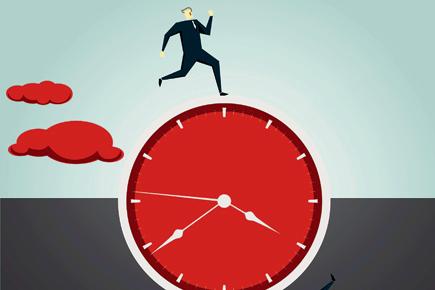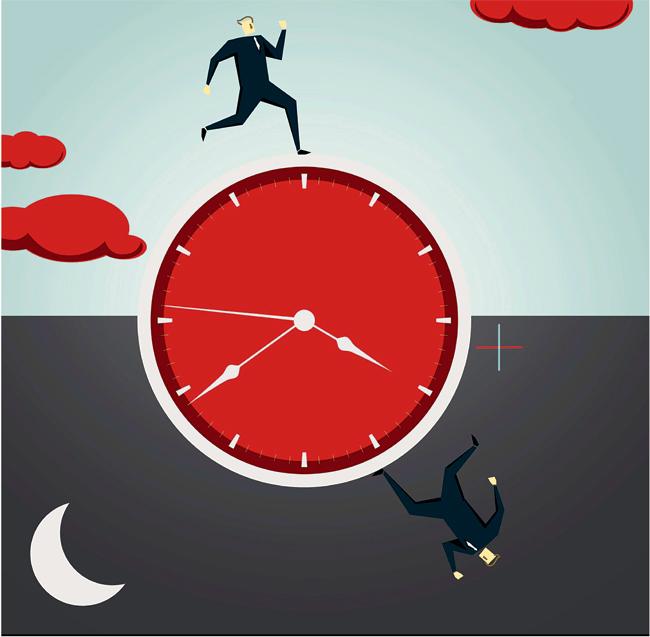If you are a morning person, you just might take shortcuts at night. A new study on the relationship between ethical decision-making and chronotype (time when individuals are alert) indicates that early-rising people are more ethical in the morning and night owls at night

Time
While the debate on the overall productivity of morning larks and night owls rages on, a new study shows that there might be an ethical angle to it as well.
ADVERTISEMENT

Researchers at Johns Hopkins University, Washington University, Georgetown University and Harvard University have produced a research paper, titled The Morality of Larks and Owls, which found a link between people being more likely to be honest when it fitted their chronotype (timing when they are most active).

The researchers examined the behaviour of 200 people through problem-solving tests and games, and the results indicate that early-rising ‘larks’ are more ethical in the morning and night loving ‘owls’ at night. The level of dishonesty was higher when people were outside their preferred time of day. The findings could have implications for workplaces that have rotating shifts, overall working hours, the structure of the working day and its effect on decision-making.


The owls and larks
Commenting on the research, Clinical Psychologist and Behaviour Consultant Hvovi Bhagwagar (in pic) explains that when we are awake, we are operating from the prefrontal cortex. “The frontal lobe of the brain is responsible for executive functioning, such as decision-making, reasoning or planning. This part is most alert during wide-awake stages. So, a person is more likely to use higher order functions such as honesty then. But using the prefrontal areas is very energy consuming and since most of us are “cognitive misers”, we prefer to give our brain less work to do. So, if one has to make ethical decisions about right or wrong when they are already sleepy, they are more likely to take the easy way out.”

Khyati Birla, Life coach
She cites the example of a “lark” mother who is nearing bedtime and has a 6-year-old demanding chocolate biscuits. “Although she knows it will give him a sugar high, she is more likely to give in rather than reinforce rules as this requires less cognitive effort. Similarly an “owl” boss who has to make strategy decisions at 7 am power breakfasts may take short-cuts and say white lies to close a business deal rather than expend mental energy negotiating patiently,” she states. Life coach Khyati Birla seconds Bhagwagar adding that when an individual is out of their sleep time zone, they enter a physiological state wherein areas of the brain governing decision-making are slowing down to prepare for sleep.
”We know that sleep deprivation causes moral impairment, among other effects. One study found that losing a full night’s sleep caused people to adopt much riskier-than-normal gambling strategies. Our brains are wired to make judgment calls based on the information available. However, the processing of information is impaired in people whose physiological clock is telling them it's time up. The stress of wanting to sleep but having to take decisions also impairs decision-making,”
states Birla.
She also cites studies on neuroethics that show how behaviour changes as an effect of sleep deprivation: “There is no definitive demarcation by our brain between moral and non-moral issues. Decision-making falls as a continuum from non-moral to moral. Since the processor is impaired, what’s generally considered unethical or wrong may become acceptable depending upon how away from their chronotype (larks or owls) they are. Also, the higher the emotional intelligence of the lark or owl, the less the chances of their making the wrong decisions which could later on prove to be unethical.”
How to cope?
Bhagwagar suggests a person adjust themselves to requirements of daily life to cope better. “Sleep and wake at a proper time regardless of whether you are an owl or a lark. Sleep deprivation plays a larger role in decision-making events. Be aware of your typical best time of day and reserve those for tougher decisions. When that is not practical, remember that although you may not make the best decisions during sleepier moments, nothing catastrophic is likely to happen and one can make up for faulty decisions later,” she observes.
Birla emphasises that where there is no flexibility of working hours, one of the ways would be aligning your body clock as per your working hours. “Doing a graded sleep pattern where one trains himself to sleep 15 minutes early every week can help night owls become larks eventually. Maintaining a diary to note down the time when one feels chronically fatigued can help one detect his pattern and strategise his work schedule accordingly. Workplaces with flexi timings can increase productivity. Also, an individual can work out their schedule in a way so that they can take decisions when they feel most alert.”
 Subscribe today by clicking the link and stay updated with the latest news!" Click here!
Subscribe today by clicking the link and stay updated with the latest news!" Click here!






